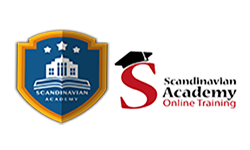Individuals, leaders, supervisors and all those who are engaged in quality management implementation and improvement of organizational performance.
- Describe the importance of quality in organizations.
- Explain the impact of leadership to support quality management systems.
- Summarize the most used quality philosophies and tools to establish priorities within their organization.
- Study international, national and local quality standards, models and awards (ISO, TQM, Malcolm Baldrige etc.).
- Assess team dynamics and the role of teams in their continual improvement projects.
- Leadership and Management in Quality
- Definitions
- Process-Based View
- Productivity Limitations
- The MUDA Factor
- Eight Types of Waste
- Cost of Poor Quality
- Quality Basics and Definitions
- Definition and Concept of Quality
- History of Quality
- Benefits of Implementing a Quality Model
- Review of Common Quality Models
- Review of Quality Gurus
- Quality Philosophies
- Deming’s 14 Points
- Juran’s Trilogy
- Crosby’s Zero Defects
- House of Quality and Quality Function Deployment (QFD)
- Six Sigma Methodology
- Lean Principles
- Quality Models, Awards and Methodologies
- Malcolm Baldrige National Quality Award and EFQM
- HH Sheikh Khalifa Excellence Award
- ISO9001:2008
- Total Quality Management
- Building Teams in a Quality Management System
- Why are Teams Important in Quality Management Projects?
- Barriers to Teams Achievement
- Characteristics of Effective Teams
- Team Development Cycle
- Team Members Selection Tools
- Improvement Tools and Techniques
- Streamlining the Organization
- The “ESSA” Method
- Savings in Material Costs
- Reducing the Costs of Services
- 140 Ideas to Cut Costs
- Ethics in Quality Management
- American Society for Quality Code of Ethics
- The diploma is held by the direct training system
- Number of hours 50 training hours
- The trainee is given a certificate documenting his attendance, participation and interest in the diploma, attested by the Swedish Ministry of Foreign Affairs
- 80% of the diploma hours must be completed to obtain the certificate
Advantages of attending and participating in diploma activities with the Scandinavian Academy for Training and Development in the Kingdom of Sweden
- After completing the diploma and successfully passing it, the trainee participating in the diploma gets a training scientific bag that includes:
- An integrated training package containing (certificate of attendance, participation and interest in the diploma attested by the Swedish Ministry of Foreign Affairs – the scientific material for the diploma)
- The Scandinavian Academy for Training and Development is a specialized training company registered in the Kingdom of Sweden under the number – 559173-7431
- The certificate issued by the Scandinavian Academy for Training and Development is not considered an academic certificate, but rather a professional certificate documenting participation and attendance in training activities. All attestations of the certificate are commercial attestation only, not academic.
Course Features
- Lectures 10
- Quizzes 0
- Duration 50 hours
- Skill level All levels
- Language English
- Students 0
- Certificate Yes
- Assessments Yes








